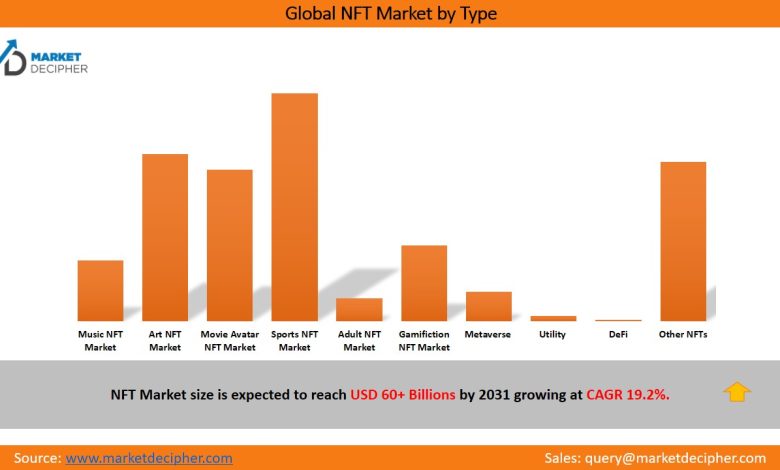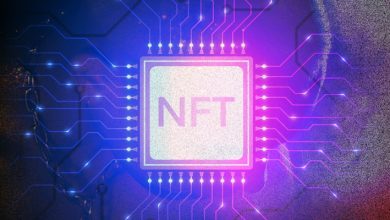NFT Gaming: Future Potential and Market Analysis

- Understanding NFTs and their impact on the gaming industry
- Exploring the intersection of blockchain technology and gaming
- The rise of NFTs in the gaming world: A comprehensive overview
- Analyzing the market trends and opportunities for NFT gaming
- Challenges and opportunities in the NFT gaming space
- The future of NFT gaming: Predictions and possibilities
Understanding NFTs and their impact on the gaming industry
NFTs, or non-fungible tokens, have been making waves in the gaming industry due to their unique ability to provide players with true ownership of in-game assets. These digital assets are stored on the blockchain, ensuring their scarcity and authenticity. This has opened up a whole new world of possibilities for gamers, allowing them to buy, sell, and trade items across different games without restrictions.
One of the key impacts of NFTs on the gaming industry is the potential to revolutionize the way players interact with games. By allowing players to truly own their in-game assets, NFTs can create a more immersive and personalized gaming experience. Players can customize their characters, weapons, and other items in ways that were not possible before, adding a new layer of depth to gameplay.
Furthermore, NFTs have the potential to create new revenue streams for game developers. By tokenizing in-game assets, developers can generate additional income through the sale of these assets on secondary markets. This can help offset development costs and incentivize continued support and updates for games.
Overall, the integration of NFTs into the gaming industry has the potential to reshape the way games are played, developed, and monetized. As more developers and players embrace this technology, we can expect to see a shift towards a more decentralized and player-centric gaming ecosystem.
Exploring the intersection of blockchain technology and gaming
Blockchain technology has been making waves in the gaming industry, offering new opportunities for players and developers alike. By leveraging blockchain, games can incorporate non-fungible tokens (NFTs) to create unique in-game assets that players truly own. This intersection of blockchain technology and gaming opens up a world of possibilities for the future of gaming.
One of the key advantages of using blockchain in gaming is the ability to verify the scarcity and authenticity of in-game items through NFTs. This gives players a sense of ownership and value for their digital assets, which can be traded or sold in a secure and transparent manner. Additionally, blockchain technology enables decentralized gaming platforms, allowing for more player control and autonomy.
Moreover, the integration of blockchain technology in gaming can lead to new revenue streams for developers. By tokenizing in-game assets as NFTs, developers can create additional monetization opportunities through the sale of these unique items. This can help drive engagement and interest in games, as players have the chance to earn real value from their gaming experiences.
Overall, the intersection of blockchain technology and gaming has the potential to revolutionize the industry, offering new ways for players to engage with games and for developers to monetize their creations. As the technology continues to evolve, we can expect to see even more innovative uses of blockchain in gaming, shaping the future of the industry in exciting ways.
The rise of NFTs in the gaming world: A comprehensive overview
The rise of Non-Fungible Tokens (NFTs) in the gaming world has been nothing short of revolutionary. NFTs have opened up a whole new realm of possibilities for gamers, allowing them to truly own and trade in-game assets like never before. This comprehensive overview delves into the impact of NFTs on the gaming industry and explores the future potential and market analysis of this exciting new technology.
Analyzing the market trends and opportunities for NFT gaming
When analyzing the market trends and opportunities for NFT gaming, it is evident that the industry is experiencing significant growth and innovation. NFTs, or non-fungible tokens, have revolutionized the way in which digital assets are bought, sold, and traded within the gaming world. This has opened up a plethora of opportunities for developers, gamers, and investors alike.
One of the key trends in the NFT gaming market is the rise of play-to-earn games, where players can earn real-world value by participating in the game and collecting NFTs. This has created a new paradigm where gamers are not only playing for entertainment but also for financial gain. As a result, more players are flocking to these games, driving up demand for NFTs and creating a lucrative market for developers.
Another trend to consider is the integration of blockchain technology into gaming platforms. Blockchain provides a secure and transparent way to track ownership of NFTs, ensuring that players have full control over their digital assets. This has led to increased trust and confidence in the NFT gaming market, attracting more players and investors to the space.
Overall, the market trends and opportunities for NFT gaming are promising, with the industry poised for continued growth and innovation. Developers and investors who capitalize on these trends stand to benefit from the lucrative potential of this emerging market.
Challenges and opportunities in the NFT gaming space
As the NFT gaming space continues to grow, it presents both challenges and opportunities for developers and players alike. One of the main challenges is the high barrier to entry for new players due to the complexity of acquiring and understanding NFTs. This can be a barrier for those who are not familiar with blockchain technology or cryptocurrency. However, this challenge also presents an opportunity for developers to create more user-friendly interfaces and educational resources to onboard new players.
Another challenge in the NFT gaming space is the issue of scalability. As more players join NFT games, there is a need for the underlying blockchain technology to be able to handle the increased demand. This is an area where developers are actively working to find solutions, such as layer 2 scaling solutions and interoperability between different blockchains.
On the other hand, the NFT gaming space also presents exciting opportunities for developers and players. One of the main opportunities is the ability to truly own in-game assets and transfer them between different games. This opens up a whole new world of possibilities for players to monetize their gaming experience and create unique gaming experiences.
Additionally, NFTs allow for true digital scarcity, which can create a sense of exclusivity and value for in-game assets. This can lead to new revenue streams for developers and players alike, as rare and unique assets can command high prices in the secondary market.
The future of NFT gaming: Predictions and possibilities
The future of NFT gaming holds immense potential for growth and innovation in the gaming industry. As blockchain technology continues to evolve, we can expect to see a surge in the development of NFT-based games that offer unique and valuable in-game assets. These assets can be bought, sold, and traded on various NFT marketplaces, creating a new economy within the gaming world.
One of the key predictions for the future of NFT gaming is the integration of these digital assets across multiple games and platforms. Players will be able to use their NFTs in different games, allowing for greater flexibility and customization. This interoperability will open up new possibilities for cross-game collaborations and experiences, enhancing the overall gaming experience for players.
Another exciting possibility for NFT gaming is the concept of play-to-earn games, where players can earn real-world value by participating in the game and acquiring valuable NFTs. This model has the potential to revolutionize the gaming industry by providing players with a tangible reward for their time and effort. It also has the potential to attract a new audience of gamers who are interested in the financial incentives offered by NFT gaming.



